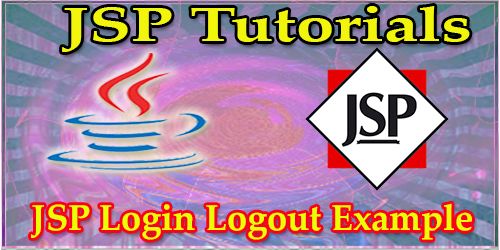The Expression Language (EL) simplifies the accessibility of data stored in the Java Bean component, and other objects like request, session, application etc.
There are many implicit objects, operators and reserve words in EL.
It is the newly added feature in JSP technology version 2.0.
Syntax for Expression Language (EL)
${ expression }
Implicit Objects in Expression Language (EL)
There are many implicit objects in the Expression Language. They are as follows:
| Implicit Objects | Usage |
|---|---|
| pageScope | it maps the given attribute name with the value set in the page scope |
| requestScope | it maps the given attribute name with the value set in the request scope |
| sessionScope | it maps the given attribute name with the value set in the session scope |
| applicationScope | it maps the given attribute name with the value set in the application scope |
| param | it maps the request parameter to the single value |
| paramValues | it maps the request parameter to an array of values |
| header | it maps the request header name to the single value |
| headerValues | it maps the request header name to an array of values |
| cookie | it maps the given cookie name to the cookie value |
| initParam | it maps the initialization parameter |
| pageContext | it provides access to many objects request, session etc. |
EL param example
In this example, we have created two files index.jsp and process.jsp. The index.jsp file gets input from the user and sends the request to the process.jsp which in turn prints the name of the user using EL.
index.jsp
process.jsp
Welcome, ${ param.name }
EL sessionScope example
In this example, we printing the data stored in the session scope using EL. For this purpose, we have used sessionScope object.
index.jsp
welcome to index page
<% session.setAttribute(“user”,”sonoo”); %> visit
process.jsp
Value is ${ sessionScope.user }
EL cookie example
index.jsp
First JSP
<% Cookie ck=new Cookie(“name”,”abhishek”); response.addCookie(ck); %> click
process.jsp
Hello, ${cookie.name.value}
Precedence of Operators in EL
There are many operators that have been provided in the Expression Language. Their precedence are as follows:
| [] . |
| () |
| -(unary) not ! empty |
| * / div % mod |
| + – (binary) |
| < <= > >= lt le gt ge |
| == != eq ne |
| && and |
| || or |
| ?: |
Reserve words in EL
There are many reserve words in the Expression Language. They are as follows:
| lt | le | gt | ge |
| eq | ne | true | false |
| and | or | not | instanceof |
| div | mod | empty | null |







Leave A Comment